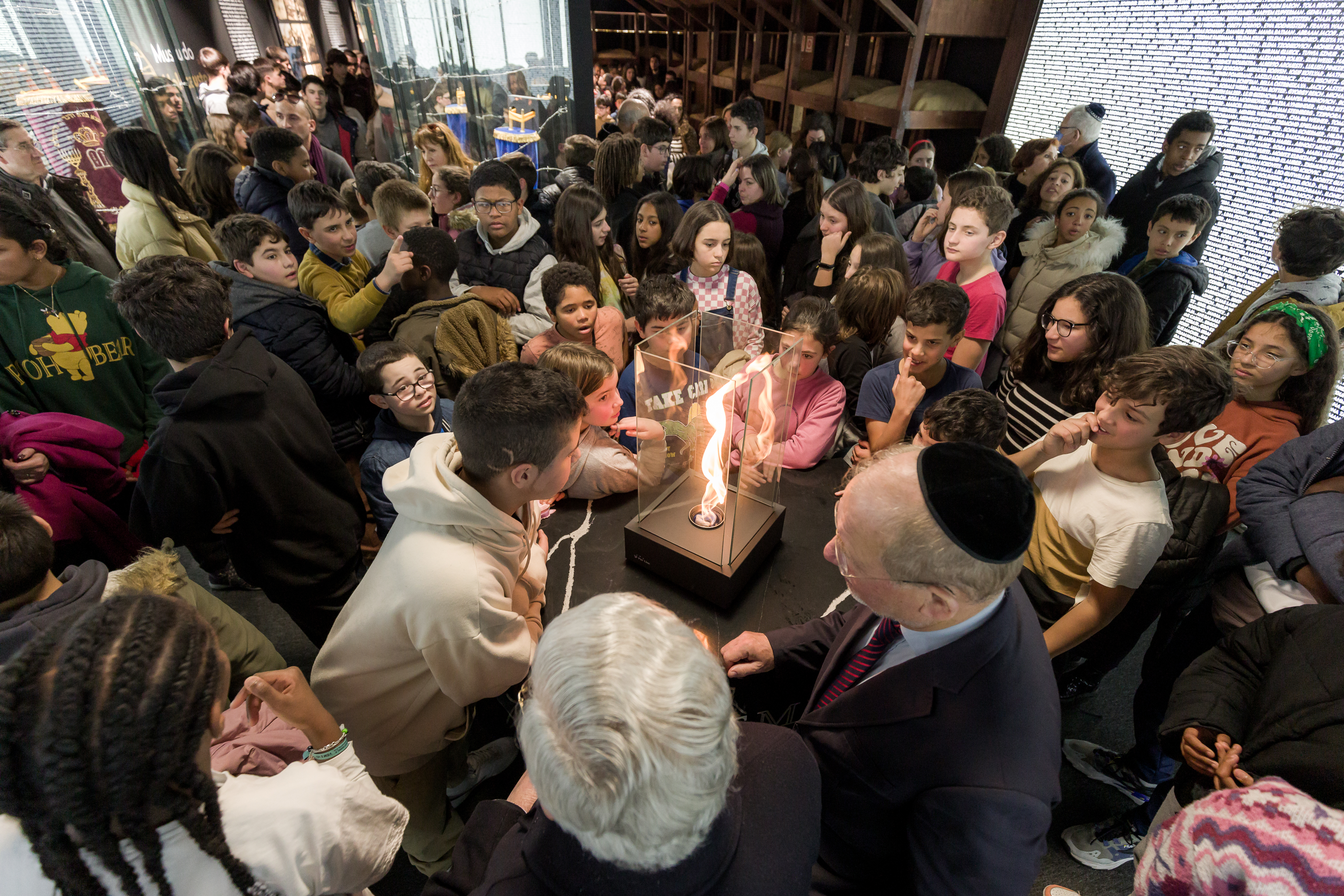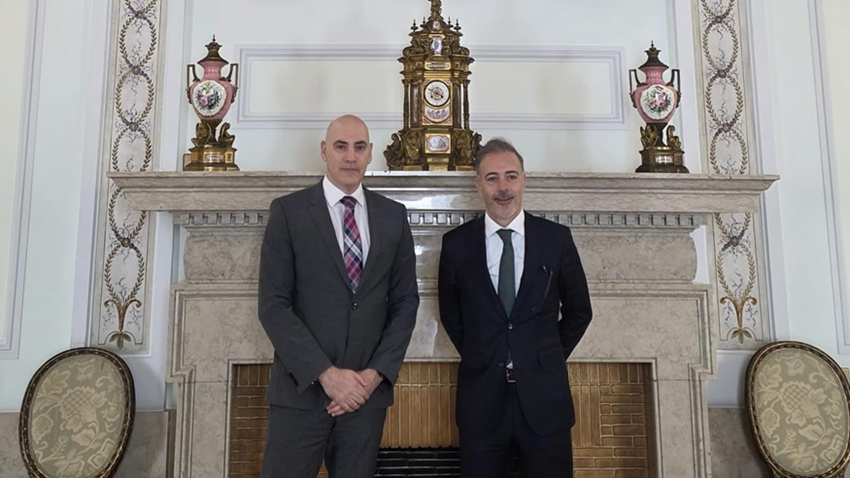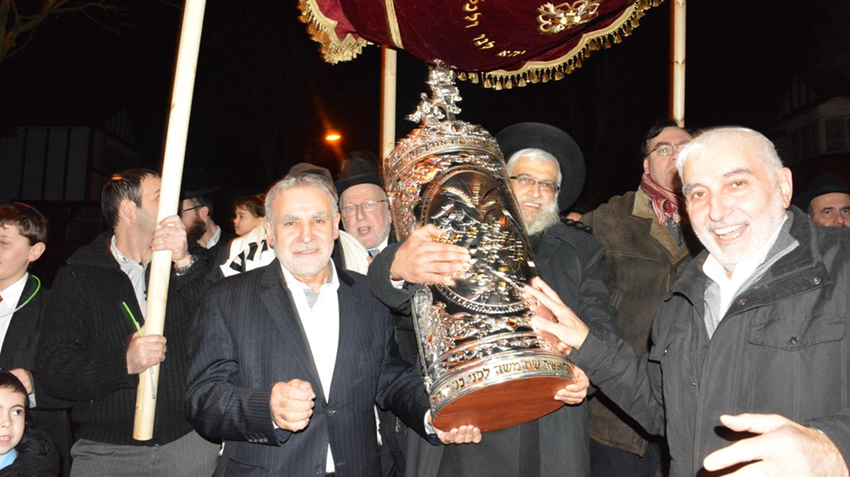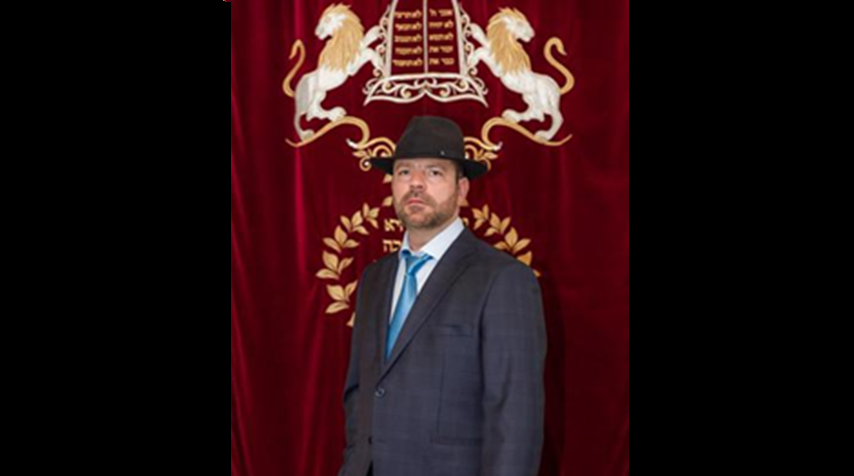In partnership with European Jewish Association, the Holocaust Museum of Oporto commemorated the International Holocaust Remembrance Day. A flame was lit in the Museum's Memorial Room with the names of tens of thousands of people murdered. The lighting of the flame was carried out by students from the schools present.
On Twitter, the Jewish Community of Oporto declared that “at the Holocaust Museum of Oporto, we can see children and teenagers who truly respect the Jewish community. We don't see politicians with mere convenience speeches, let alone antisemitic politicians”.
Generations after the end of the Shoah, antisemitism is worryingly on the rise, in Europe and beyond. The European Union is determined to put an end to it. The EU strategy on combating antisemitism and fostering Jewish life (2021-2030) is a very ambitious strategy that faces much resistance not only in the general societies but also in national governments and parliaments.
Gabriel Senderowicz, the President of Jewish community of Oporto said “We saw recently in Portugal that anti-Semitism is the rejection of Jewish people, the Jewish principles, synagogue Jews, business Jews, and all Jews who are not fully converted to modernism and its values. European Union will certainly manage to promote the return of the Jewish people, their culture and religion. However, as soon as Jewish communities start making a strong mark in European territory, the influential antisemites in society will attempt to destroy Jewish life bit by bit, using the same miths and methods employed in the past”, Senderowicz adds.
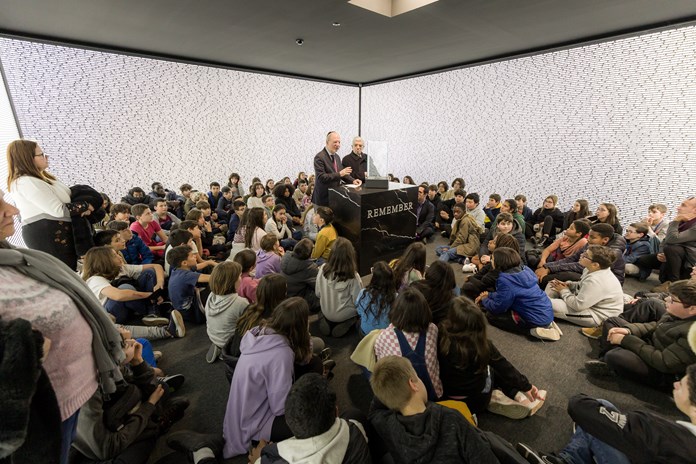
The Holocaust Museum of Porto (MHP) was created in 2021 by the Jewish Community of Porto (CIP/CJP) in partnership with B’nai B’rith International and Holocaust museums of Washington, Moscow, Hong Kong and others. The new museum received 80,000 visitors until December.
The Oporto Holocaust Museum invests in teaching, professional training of educators, as well as in the promotion of exhibitions, encouraging and supporting research. "It is important to teach the Holocaust in Portugal. At school my brother and I were the only Jews. The Holocaust was never taught or addressed, and few people knew anything about it" - Dara Jeffries, a board member of the Jewish Community of Oporto.
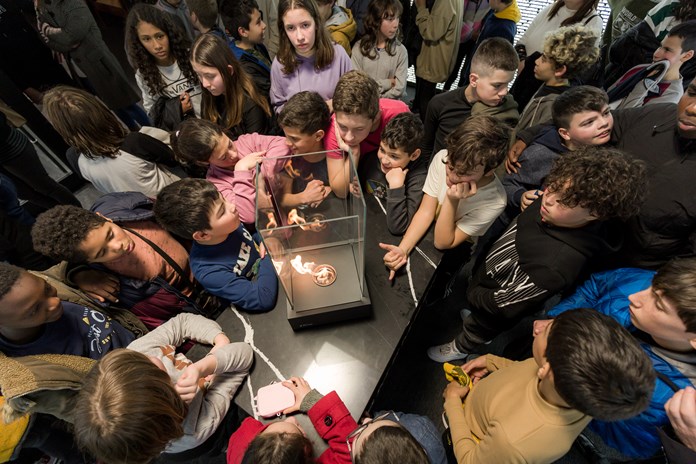
The Oporto Holocaust Museum portrays Jewish life before the Holocaust, Nazism, Nazi expansion in Europe, the Ghettos, refugees, concentration, labour and extermination camps, the Final Solution, the Death Marches, Liberation, the Jewish population in the post-war period, the Foundation of the State of Israel, Winning or dying of hunger, The Righteous among Nations.
In this Museum visitors have the opportunity to visit the reproduction of the Auschwitz dormitories, as well as a name room, a flame memorial, cinema, conference room, study centre, corridors with the complete narrative and photographs and screens showing real footage about the before, during and after the tragedy.
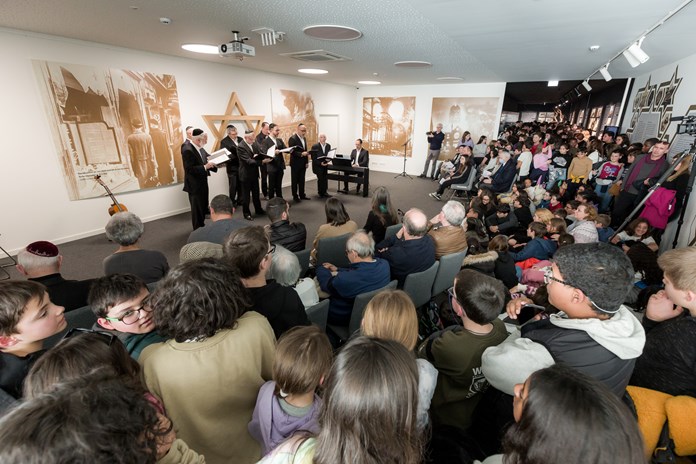
Testimonies of members of the Oporto Jewish community:
– Luísa Cymerman Finkelstein: “For some members of my family life ended in the extermination camps, and others were shot by firing squads after being forced to dig a mass grave.”
– Josef Lassman: “My father never said a word about what happened during the Shoah. He prefered to move on, without looking back. He was then 19 years old and all his family members had been killed. Regading my mother, she was in Auschwitz, in the experimentation block. She described what happened to her, her sister, parents and family before, during and after the Shoah. I don't know if there is any testimony so complete and so moving.”
– Eta Rabinowicz Pressman Wright: "My mother’s sister and brothers were all killed, their children too. In one case, the porter of the building wanted to save the children but they refused and said they wanted to go with their parents. They also died. The only surviving brother was imprisoned by the Soviets in a gulag in Siberia.”
– Michael Leo Rothwell: "My grandparents were good German patriots and loved their country. Two of my great-uncles gave their lives for the Fatherland during the First World War. When the Nazis came to power, my grandparents became unwanted aliens. In 1943 they were transported like cattle to Auschwitz, split up, subject to every possible abuse and murdered".
– Deborah Lieberman Walfrid Elijah: “The Holocaust must be recounted by the victims. My mother was an orphan when she reached Argentina and my father was forced to play the violin in Theresienstadt propaganda camp. I had no grandparents when I was born. They were all executed in Poland, after their heads were shaved, numbers were tattooed on their arms and they were used as slave labour.”
– Jonathan Lackman: “My grandfather escaped from Treblinka and my grandmother, who had typhus, was rescued from Bergen-Belsen camp in northern Germany, where Anne Frank died. I will always share their stories.”































